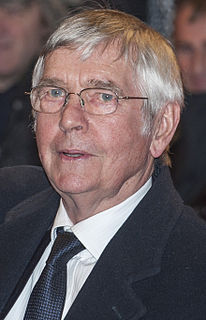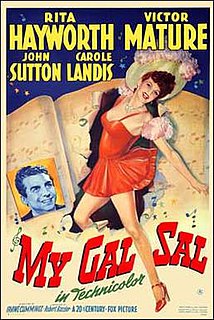
Cross-dressing is the act of wearing items of clothing and other accoutrements commonly associated with the opposite sex within a particular society. Cross-dressing has been used for purposes of disguise, comfort, and self-expression in modern times and throughout history.

Albert Finney was an English actor who worked in film, television and theatre. He attended the Royal Academy of Dramatic Art and worked in the theatre before attaining prominence on screen in the early 1960s, debuting with The Entertainer (1960), directed by Tony Richardson, who had previously directed him in the theatre. He maintained a successful career in theatre, film and television.

Betty Marsden was an English comedy actress. She is particularly remembered as a cast member of the radio series Beyond Our Ken and Round the Horne. Marsden also appeared in two Carry On films, Carry On Regardless (1961) and Carry On Camping (1969).

Sir Thomas Daniel Courtenay is an English actor who came to prominence in the early 1960s with a succession of films, including The Loneliness of the Long Distance Runner (1962), Billy Liar (1963), and Doctor Zhivago (1965). Since the mid-1960s, he has been known primarily for his work in the theatre, although he received Academy Award nominations for Doctor Zhivago and the film adaptation of The Dresser (1983), which he had performed in the West End and on Broadway. He was created a Knight Bachelor in February 2001 for his services to cinema and theatre.

Tokyo Story is a 1953 Japanese drama film directed by Yasujirō Ozu and starring Chishū Ryū and Chieko Higashiyama. It tells the story of an aging couple who travel to Tokyo to visit their grown children. The film contrasts the behavior of their children, who are too busy to pay them much attention, with that of their widowed daughter-in-law, who treats them with kindness.
Sir Ronald Harwood, is an African-born British author, playwright and screenwriter. He is most noted for his plays for the British stage as well as the screenplays for The Dresser and The Pianist, for which he won the 2003 Academy Award for Best Adapted Screenplay. He was nominated for the Best Adapted Screenplay Oscar for The Diving Bell and the Butterfly (2007).
A set dresser in drama prepares the set with props and furniture to give it correct appearance and make sure each item is in correct position for each performance.
Peter James Yates was an English film director and producer. He was born in Aldershot, Hampshire.

To Be or Not to Be is a 1983 American war comedy film directed by Alan Johnson, produced by Mel Brooks, and starring Mel Brooks, Anne Bancroft, Tim Matheson, Charles Durning, Christopher Lloyd, and José Ferrer. The screenplay was written by Ronny Graham and Thomas Meehan, based on the original story by Melchior Lengyel, Ernst Lubitsch and Edwin Justus Mayer. The film is a remake of the 1942 film of the same name.

My Gal Sal is a 1942 20th Century Fox musical starring Rita Hayworth and Victor Mature. The film is a biopic of 1890s composer and songwriter Paul Dresser and singer Sally Elliot. It was based on a biographical essay, sometimes erroneously referred to as a book, by Dresser's younger brother, novelist Theodore Dreiser. Some of the songs portrayed as Dresser's work were actually written by him, but several were created for the film by the Hollywood songwriting team of Ralph Grainger and Leo Robin.
A dresser is a theatrical stagehand who is involved with maintaining costume quality at each performance. They are hired by either the director, producer, or wardrobe supervisor. They report directly to the wardrobe supervisor and are usually paid by the hour.
Ray Lovejoy was a British film editor with about thirty editing credits. He had a notable collaboration with director Peter Yates that extended over six films including The Dresser (1983), which was nominated for numerous BAFTA Awards and Academy Awards.

Zena Walker was an English actress in film, theatre and television.

Walter Llewellyn Rees was an English actor.
To the Ladies is a 1923 American silent comedy film produced by Famous Players-Lasky and released by Paramount Pictures. It is based on a 1922 Broadway play, To the Ladies, by George S. Kaufman and Marc Connelly.
Padlocked is a 1926 American drama silent film directed by Allan Dwan and written by Rex Beach, Becky Gardiner, James Shelley Hamilton. The film stars Lois Moran, Noah Beery Sr., Louise Dresser, Helen Jerome Eddy, Allan Simpson, Florence Turner and Richard Arlen. The film was released on August 2, 1926, by Paramount Pictures.
This page is based on this
Wikipedia article Text is available under the
CC BY-SA 4.0 license; additional terms may apply.
Images, videos and audio are available under their respective licenses.










